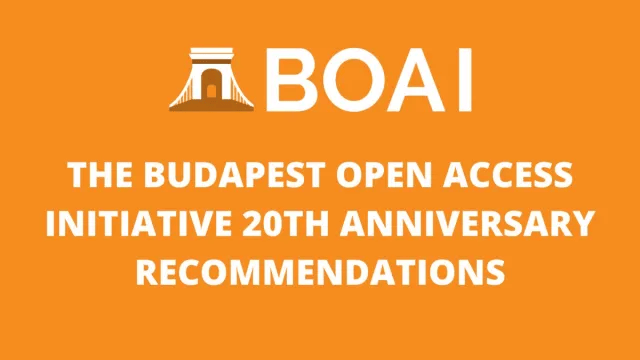Diagnosis of the formation of legal culture in representatives of the civil society of Sancti Spiritus
DOI:
https://doi.org/10.5281/zenodo.14868401Keywords:
legal culture, civil society, legal training, free legal adviceAbstract
This study evaluated the legal culture among civil society representatives in Sancti Spiritus to identify gaps and opportunities to strengthen their legal skills. Through surveys, interviews, and analysis of regulatory documents, the level of legal knowledge and the perception of the relevance of law in their daily work were evaluated. The results revealed significant deficiencies in access to legal information, training in key regulations, and developing skills for interpreting and applying law. Among the main limitations detected were the lack of knowledge of the Constitution of the Republic of Cuba and the legal system. In addition, it was identified that a large part of society is unaware of the availability of legal professionals who offer advice in a collaborative and free manner, even from academic institutions, which limits access to legal services that could facilitate the understanding and application of current regulations. In response to this, a legal training plan was proposed aimed at improving knowledge and understanding of the law among representatives of civil society in Sancti Spiritus, providing theoretical and practical tools for the exercise of their functions and promoting more significant interaction with current regulatory frameworks.
Downloads
References
Asamblea Nacional del Poder Popular. (2022). Ley No. 156 “Código de las Familias”. Gaceta Oficial de la República de Cuba, Edición Ordinaria No. 99. Recuperado de https://www.parlamentocubano.gob.cu/sites/default/files/documento/2022-09/goc-2022-o99.pdf
García, M., & Revelo, J. (2018). La construcción del Estado local en Colombia. Análisis Político, 31(93), 3-25. https://doi.org/10.15446/anpol.v31n92.71098
García, M., & Rodríguez, C. (2003). Derecho y sociedad en América Latina: un debate sobre los estudios jurídicos críticos. Colección En Clave de Sur (1ª ed) https://archivos.juridicas.unam.mx/www/bjv/libros/15/7041/7.pdf
Imbert, L. M. (2015). Cultura jurídica, familia y envejecimiento poblacional: retos y perspectivas. Derecho y Cambio Social, (42), 1-13. https://dialnet.unirioja.es/descarga/articulo/5498891.pdf
Instituto Internacional para la Sociedad Civil (ICNL). (2009). El papel de la reforma jurídica en apoyo de la sociedad civil. https://www.icnl.org/wp-content/uploads/cfr_roleoflegal-sp.pdf
López-Rivera, N. I., & Sánchez-Pérez, A. (2022). La importancia de la educación jurídica en la participación ciudadana: Un estudio en comunidades latinoamericanas. Revista de Derecho y Sociedad, 34(2), 45-67.
McKay, L. (2018). Hacia una cultura del Estado de Derecho: Análisis de respuestas eficaces a desafíos de justicia y seguridad. (A. Ajadi; V. O’Connor, eds.). United States Institute of Peace.
Molina, D. I. (2023). Crítica jurídica y política en Nuestra América. Boletín de CLACSO, 4, 15-29. https://www.clacso.org/en/boletin-4-critica-juridica-y-politica-en-nuestra-america/
Montoya, J. (2010). The Current State of Legal Education Reform in Latin America: A Critical Appraisal. Journal of Legal Education, 59(4), 545-566. https://jle.aals.org/cgi/viewcontent.cgi?article=1280&context=home
Palma, E., & Elgueta, M. F. (2019). Aportes de la didáctica de la historia del derecho a la cultura jurídica. Boletín Mexicano de Derecho Comparado, 52(154), 269-296. https://www.scielo.org.mx/scielo.php?pid=S1870-21472019000100269&script=sci_arttext
Rodríguez, C., & Rodríguez, D. (2010). Cortes y cambio social: Cómo la Corte Constitucional transformó el desplazamiento forzado en Colombia. Dejusticia.
Rodríguez, D. I. M., & Pabón, A. P. (2023). El feminismo jurídico y la desnaturalización de las injusticias socioeconómicas, políticas, identitarias y vitales contra las mujeres. Ciencia Política, 18(35), 211-233. https://doi.org/10.15446/cp.v18n35.105091
Sevilla, O. (2020). Cultura jurídica en materia cultural: La necesidad de un derecho cultural en la sociedad mexicana contemporánea. El Artista, (17). https://www.redalyc.org/journal/874/87463242004/html/
Unión Nacional de Juristas de Cuba. (2022). Informe central al 9no Congreso de la Unión Nacional de Juristas de Cuba. Actualidad Jurídica - Revista Cubana de Derecho, 2(2), 424-442. https://cuba.vlex.com/vid/actualidad-juridica-912554511
Published
Data Availability Statement
The datasets used and/or analyzed during the current study are available from the corresponding author on reasonable request.
Issue
Section
License
Copyright (c) 2025 Yoan L. Pereira, Vania González, Dario Delgado (Author)

This work is licensed under a Creative Commons Attribution-NonCommercial-ShareAlike 4.0 International License.
































